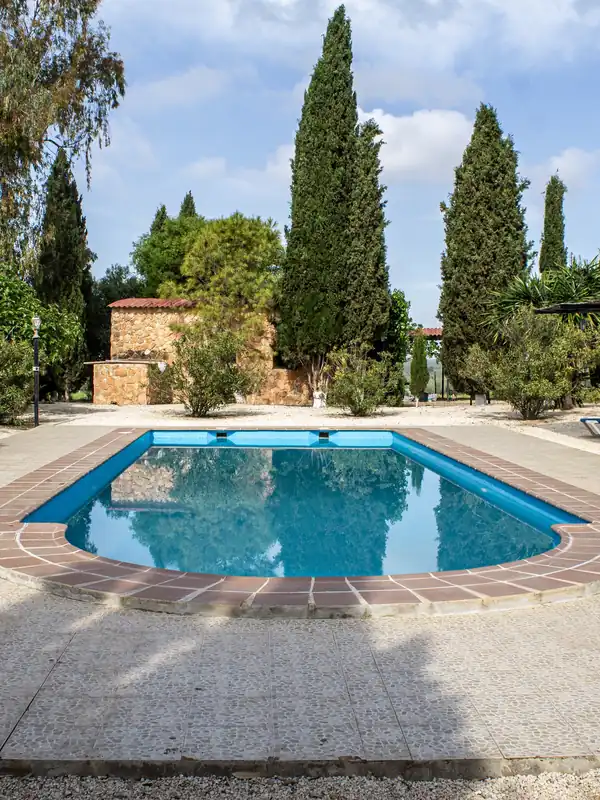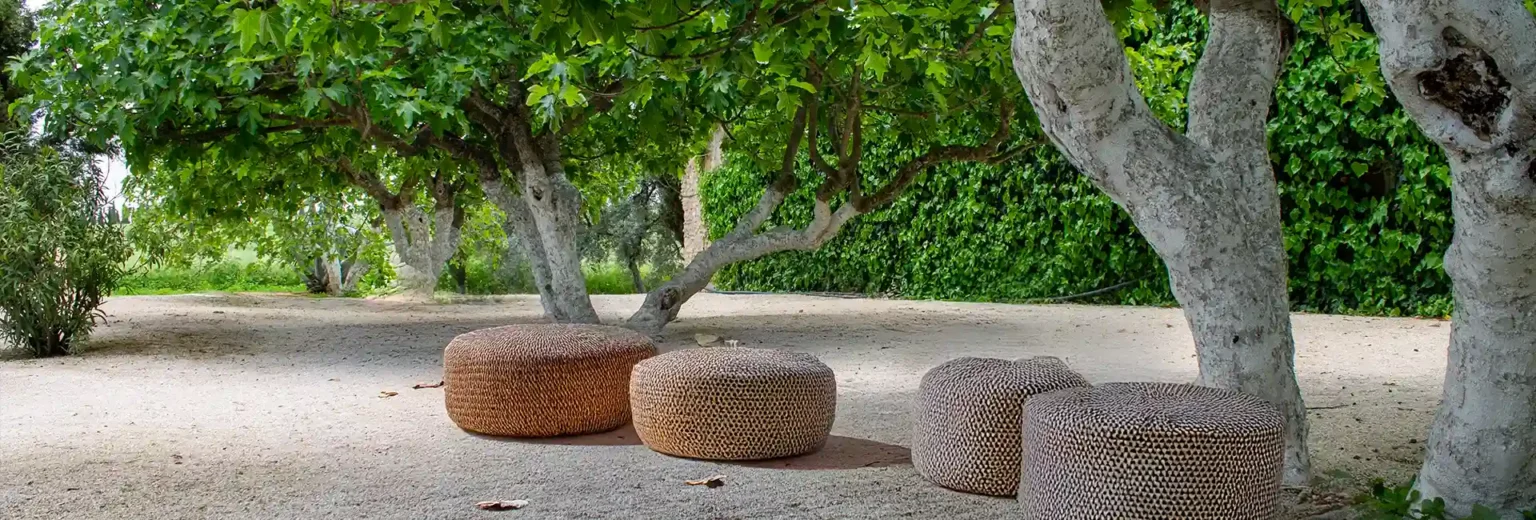Drug and Alcohol Rehab in Bloemfontein
May 29, 2025
Bloemfontein, also known as the City of Roses, is the capital of the Free State province and the judicial capital of South Africa. While it's popular among tourists for its natural beauty and an...
Navigating drug and alcohol rehab in Cape Town can feel overwhelming. There are so many options, from residential centres to specialist clinics, that it’s tough to know where to start.
Cape Town’s rehabilitation includes structured live-in care and flexible, non-residential options. The best path really depends on your needs, the severity of your addiction, and your lifestyle.


Residential or inpatient treatment means staying at the facility full-time. These centres provide detox supervision, medical support, daily therapy, and group counselling
Staying in a residential programme pulls you away from everyday triggers, letting you focus deeply on recovery. This structure is especially helpful for those with severe or long-standing substance use issues.
Outpatient treatment, also known as day treatment or virtual intensive treatment, lets you live at home while attending scheduled sessions. This suits people with family or work commitments who need flexibility when they seek treatment.
Programmes can include one-to-one counselling, group therapy, medical check-ins, and addiction education. You keep your daily routine, but a stable home environment is key for this approach to really work.

Detox is usually the first phase of substance abuse treatment, clearing drugs or alcohol from your system under medical supervision. This helps minimise withdrawal symptoms, which can be rough, both physically and mentally. Safety is a big deal here, so medical teams monitor you to manage complications. The detox timeline and approach are tailored to your substance use history and health.
Substance use often goes hand in hand with mental health issues like depression or anxiety. Good rehab centres in Cape Town include thorough mental health assessment and support as part of the recovery process. Depression and co-dependency are tackled using evidence-based methods, so you get real support and a suitable rehab.
Dual diagnosis means dealing with both addiction and other mental health disorders, like depression, anxiety, or an eating disorder. Treating both together is crucial because they affect each other, and ignoring one just doesn’t work. In Cape Town, dual diagnosis programmes combine medication, therapy, and ongoing support. This might include group therapy, individual sessions, and regular medical reviews.
Holistic rehab treatment takes a “whole-person” approach, aiming to boost physical, emotional, and social wellbeing. It’s not just medical and psychological care but also about activities and therapies that support your lifestyle. You might find yoga, meditation, equine therapy, art therapy, or exercise programmes on offer, things that will help you when choosing the right rehab.
Rehab centres in Cape Town offer a range of therapies to target all types of addiction and its causes. You’ll likely encounter cognitive behavioural therapy (CBT), dialectical behaviour therapy (DBT), motivational interviewing, and trauma-informed care. You will also find therapy options include EMDR for trauma, mindfulness-based relapse prevention, and private sessions to support emotional healing.

Rehab costs in South Africa are all over the place. For private drug and alcohol rehab in Cape Town, you might pay as little as R3,500 or sometimes as much as R300,000; it really depends on the facility and what kind of care you’re after. Investing in recovery might be significant, but it can open the door to long-term health, recovery, and opportunities to enjoy life free from addiction.
Alcohol addiction and drug addiction are serious problems in Cape Town, cutting across all sorts of backgrounds. Substance abuse and people struggling with addiction have become a big concern for public health and safety.
Alcohol, cannabis, methamphetamine(or “tik”), heroin, and prescription meds are the most common addictions. These substances are often pretty accessible, which makes it challenging for some people to stay away or quit, increasing the need for drug rehabs in Cape Town. Alcohol addiction is still one of the addictions people struggle with the most, binge drinking, health issues, you hear about it all the time. Drug use, especially meth and heroin, is often linked to crime, unemployment, and extra pressure on healthcare services.
Getting into a treatment centre in Cape Town for drugs isn’t always straightforward because services can be hard to access or just not enough for everyone who needs them.

Cape Town has a range of treatment programs, including residential rehabs, outpatient services, and sober living options in the community.
Offers programmes for alcohol and drug rehab. Their staff handles medical detox and therapy in a structured setting.
7 Valley Rd, Hout Bay, Cape Town, 7806, South Africa
The Cedars Cape Manor House programmes cover drug detox and alcohol rehab in a residential. They offer both one-on-one and in groups.
5 Tiverton Rd, Plumstead, Cape Town, 7801, South Africa
Liberty Home offers addiction treatment for people from all walks of life. They offer both mental health and addiction treatment, even eating disorders a certain extent.
5 Boulder Rd, Marina Da Gama, Cape Town, 7945, South Africa
Specialising in co-occurring disorders and mental health, Ixande offers specialised care and attention to its patients and residents.
25 Gibson Rd, Kenilworth, Cape Town, 7708, South Africa

If you’re looking for free rehab facilities in Cape Town, there are a few options. Public organisations offer different treatment options from severe addiction recovery to mental health recovery.
SANCA Western Cape offers free assessments, outpatient counselling, and referrals for more challenging cases. They therapy to adults, teens, and families. Group sessions and family education are also available.
City of Cape Town runs free programmes, including the Matrix outpatient programmes. These focus on harm reduction, relapse prevention, and peer support.
AA offers peer support meeting for people recovering from alcohol addiction by using the 12-step programme.
Going with private rehab in Cape Town means you’ll get confidential, often more comfortable facilities. These centres usually offer personalised care, shorter waits, and lower staff-to-client ratios.
Private rehab in Cape Town, like local centres, is a solid choice if you need immediate, focused support. Still, some people find the local options limited or want more privacy and a real change of scene.

Maybe you’re looking for a real shot at recovery somewhere new. Sierra Recovery in Malaga, Spain, brings something different to the table compared to the usual Cape Town options.
Escape familiar triggers and routines by beginning your recovery journey in beautiful Malaga, Spain, far from the distractions of Cape Town.
Benefit from tailored programs that address your unique needs, focusing on mind, body, and spirit for comprehensive healing.
Receive care from a diverse team of experienced professionals, with over 30 years of experience in drug and alcohol addiction rehab, bringing global expertise and compassionate support to your recovery.
Enjoy a serene, comfortable setting with premium amenities designed to promote relaxation, privacy, and well-being.
Experience more one-on-one time and personalized support thanks to our intentionally limited group sizes. A personalized rehab clinic.
Immerse yourself in the rich culture and natural beauty of Spain, adding a unique dimension to your effective treatment journey.
Travelling from Cape Town to Sierra Recovery in Malaga, Spain, isn’t complicated.
Flying from Cape Town International Airport (CPT) Direct flight to Málaga-Costa del Sol Airport (AGP), once you’re in Malaga, we can arrange private airport transfers right to Sierra Recovery.
To make your journey as smooth as possible, we offer a complimentary pick-up service from Malaga Airport. Our team will be there to greet you upon arrival and ensure a comfortable transfer directly to our rehab facility, located just an hour away.
Rehab in Spain means structured daily routines and a focus on both medical and psychological support. There’s a big emphasis on practical strategies for lasting recovery.
Building a supportive recovery community with the right rehab program is crucial, as our team really tries to address all aspects of addiction and tailor to the individual making us an incredibly reputable rehab.


Finishing rehab isn’t the end of the road. You’ll still be part of the recovery community through aftercare programmes, relapse prevention, and peer meetings to support your drug and alcohol rehabilitation.
These ongoing services help reinforce what you learned during treatment. You might join therapy sessions, regular check-ins, or support networks that help you stay connected and accountable. The whole idea is to prevent relapse, encourage healthy habits, and keep growing as a person.
Comparing Sierra Recovery in Malaga, Spain, with local Cape Town rehabs? There are some key differences. Our place offers full privacy and a discreet, calming environment, to those suffering from addiction or mental health problems. Beautiful setting and experience staff makes us a top rehab center.
Many rehab centres in Cape Town accept private healthcare insurance, self-payment, or medical aid. Some even offer payment plans or work with social services if you qualify.
Effectiveness really depends on the programme, the staff, and how much they personalise things. Cape Town does have accredited centres with multidisciplinary teams and evidence-based therapies for drug rehabilitation or those struggling with alcohol addiction.
Admission usually starts with an assessment by addiction professionals, online or in person. They’ll go through your medical history, substance use, and any mental health needs, that will help them understand the underlying causes of addiction or mental health problems.
After that, you’ll receive a treatment plan and discuss costs, timelines, and centre policies. If you’re accepted, you might start with detox (if needed) and then move into therapy sessions.
Cape Town centres offer individual therapy, group counselling, family sessions, CBT, and usually some holistic activities. Some places might add art therapy, mindfulness, or fitness programmes to the mix.
Programme lengths vary. Short-term rehab is often 21 to 28 days, while longer plans can go 60 or 90 days, depending on what you need.
Family support shows up in a lot of drug and alcohol rehab centres, and honestly, it can make a real difference to individuals struggling with alcohol addiction. You might see things like family therapy sessions or educational workshops, sometimes both.
Bloemfontein, also known as the City of Roses, is the capital of the Free State province and the judicial capital of South Africa. While it's popular among tourists for its natural beauty and an...
Substance misuse is a serious problem that can have significant negative effects on your physical and mental health. If you're looking for a drug and alcohol rehab in Durban, it's essential to f...
There are a number of drug and alcohol rehabs in East London, South Africa, that can help a person overcome addiction. There are also a number of treat...
When someone is struggling with addiction, every moment counts. Addiction steals not just health, but dreams, ambitions, relationships, and everything mea...
Finding effective drug and alcohol rehab in Johannesburg can feel daunting, especially if you or someone close to you wants a high standard of care and real, lasting results. The city’s rehab fa...
Finding a drug and alcohol rehab in Pretoria is an important step to fully healing from substance abuse and its effects. These facilities provide you with the knowledge and guidance to manage yo...